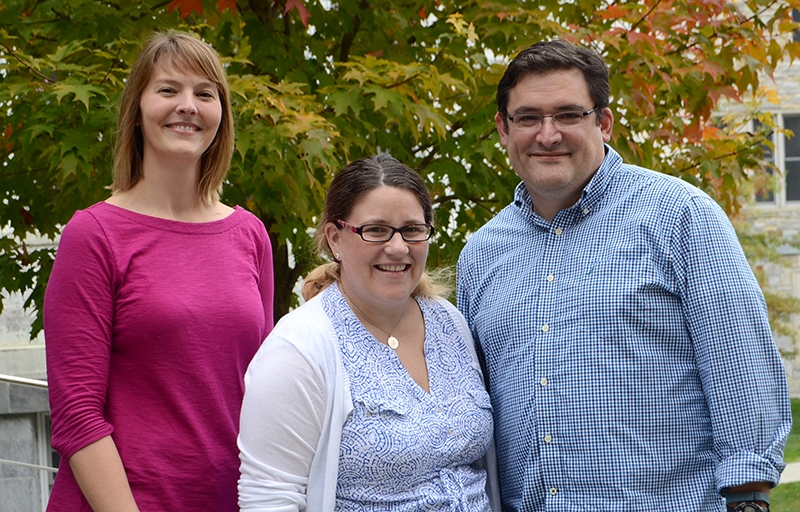Three Faculty Receive Grants to Advance Biomedical Research

MIDDLEBURY, Vt. – Three assistant professors at Middlebury College have received National Institutes of Health grants through the Vermont Genetics Network to make strides in their specific areas of biomedical research.
The Vermont Genetics Network (VGN) is funded by a five-year $16.5-million award to the University of Vermont to build biomedical research infrastructure in the Green Mountain State. The federal funding assists faculty and graduate assistants at UVM, and provides support to faculty and undergraduates at seven Vermont “partner” institutions including Middlebury College.
Faculty members Glen Ernstrom, an assistant professor of biology and neuroscience, Clarissa Parker, an assistant professor of psychology and neuroscience, and An-Gayle (“AJ”) Vasiliou, an assistant professor of chemistry, received the support to advance their research in 2014-15.
Ernstrom received a project grant from VGN to work on the genetic analysis of neurotransmitter release in Caenorhabditis elegans, a multi-cellular worm used for genetic experimentation. He joined the Middlebury faculty in 2013 and has a PhD from Columbia University.
Parker received a pilot project grant from VGN to investigate the genome-wide association for ethanol sensitivity in the diversity-outbred mouse population. She hopes to identify genes that underlie traits with relevance to human psychiatric disorders. A member of the faculty since 2013, she has a PhD from University of Colorado.
Vasiliou received a project grant from VGN to support her research into the thermal composition of biomass and the molecular pathways for sulfur chemistry. She has a PhD from the University of Colorado and has been a member of the chemistry department since 2013.
The Vermont Genetics Network has been an important source of funding for faculty and student research at the College over the past decade. “The process of applying for a VGN grant teaches junior faculty how to construct compelling proposals to fund their research,” said Steve Tombulak, professor of environmental and biosphere studies and director of sciences. “It helps faculty collect the preliminary data they’ll need if they decide to apply for a federal grant later on.”
And since one of the VGN’s goals is to develop future generations of research scientists, it typically funds one or two undergraduate research assistants. “The faculty get an extra pair of hands in the lab, and the students get hands-on experience and training in research,” Trombulak added.

